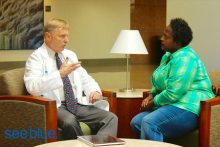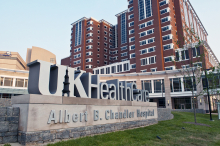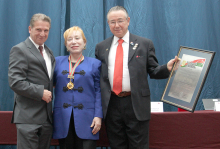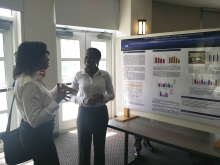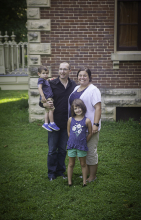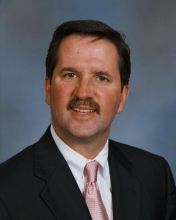UK ORI Provides Informational Overview of New NIH Policy on IRB
Join UK’s Office of Research Integrity (ORI) and the UK Center for Clinical and Translational Science (CCTS) for an informational overview of the Final NIH Policy on the Use of a Single Institutional Review Board for Multi-Site Research on August 25, 2016 from 1 PM to 2 PM in Pavilion A, Albert B. Chandler Hospital. Please RSVP to Jen Hill at jen.hill@uky.edu or 859-257-2978.
For an Experienced Research Participant, A Potentially Life-Saving Personal Discovery
On the first of May, 2015, Angelique Bell waited in a hair salon, reading the weekend section of the newspaper. She noticed an ad for a health research study that needed participants who had risk factors for diabetes. Since she met the criteria and had some time to pass, she decided to call about the study right then, from the salon chair. It was her 45th birthday.
"I don't have diabetes, but I have a strong family history of diabetes and some of the risk factors, and I thought that the information from this study could be something that could benefit me in the future," said Bell.
UK HealthCare is No. 1 in Kentucky in Latest U.S. News Best Hospitals Rankings
UK HealthCare’s University of Kentucky Albert B. Chandler Hospital is No. 1 in Kentucky in the U.S. News & World Report's Best Hospitals Rankings released today. It also is the only hospital in the state rated as High Performing in cancer. The complete rankings for 2016-17 are now available at http://health.usnews.com/best-hospitals.
South East Lipid Research Conference held in conjuction with Cardiovascular Research Day - NOV 3-5
The Board of Directors of South East Lipid Research Conference is excited to announce the 2016 South East Lipid Research Conference (SELRC). This year we have a new venue and a great program of lectures, training, and social events. The 2016 SELRC will be held November 3-5 in Lexington, Kentucky. This year’s conference will be hosted by the University of Kentucky and held in conjunction with the 19th Annual University of Kentucky Cardiovascular Research Day.
Medallion Nominations Close Soon
Multidisciplinary Value Program (MVP)- Round 2
Attention Investigators
College of Medicine, Office of Vice President for Research,
Plastic surgery chief conducts needs assessment for earthquake relief effort
Summer Undergraduate Researchers in the Department
Congratulations to all undergraduate student researchers and their mentors:
Miriam Hill (Xavier University, Louisianna) - Dr. Hollie Swanson
Amanda Hoskins (University of Kentucky) - Drs.Sanda and Florin Despa
Sydney Lammers (University of Kentucky) - Dr. Changcheng Zhou
John Pina (University of Kentucky) - Dr. Olivier Thibault
Meghan Turner (University of Kentucky) - Dr. Elizabeth Head
